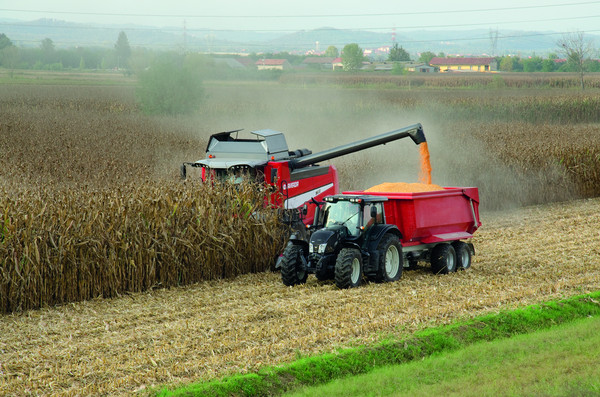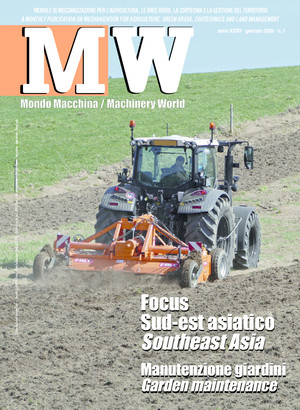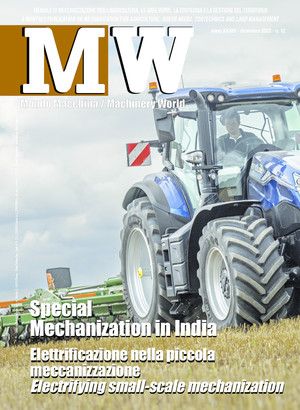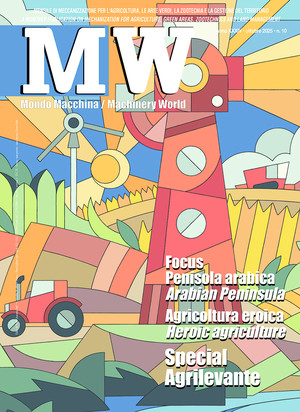
Agricultural machinery, to feed the world
The role of mechanization in the productivity of the agricultural system and in food security is the theme chosen for the public meeting organized by the Club of Bologna, in collaboration with the prestigious Accademia dei Georgofili, held on September 21 at the Teatro della Terra (Earth Theatre), at the Biodiversity Park
The central theme proposed by the Universal Exposition of Milan, “Feeding the Planet, Energy for Life”, opened a great debate on the future of food in the world and the right of everyone to have access to adequate food. It is a global challenge in which we must maintain and spread the high yields achieved by the most advanced agriculture, respecting the environment and preserving the planet’s resources. At the same time, particularly in the less advanced regions, we must provide a growing world population with the means to produce the food resources they need.
In both cases, agricultural machinery and mechanization play an unquestionable leading role and, for this reason, the Club of Bologna meets exceptionally in Milan, in a meeting open to the public, to discuss and highlight the aspects of sustainability and security of food production that only a modern and efficient mechanization can achieve on a large scale and for everyone.
Important international experts will highlight how the use of modern technologies in agricultural machinery enables the production of food in a sustainable and safe manner. The development of simple and cost-effective machines constitutes a fundamental means of promoting food security in developing countries.
Moreover, we should not forget that in the long course of human society, which began about 10,000 years ago with the discovery of agriculture and livestock, the development of more effective agricultural tools has been for thousands of years the main driver of growth and development.
They made possible the increase in production capacity of the individual, making available a surplus of food that freed a workforce for the development and growth of different sectors, thus causing the gradual evolution and economic growth of society.
But we must go as far as 1700, with the advent of the “Age of Enlightenment “ to see the birth of modern scientific thought based on “reason” and the beginning of the great journey of science that has so profoundly changed Man’s way of life.
In the UK, at the beginning of the 1700s, the first driven seed drill is built, marking the beginning of the extraordinary development of mechanization, which in the last three centuries has led to a more than hundredfold increase in human productivity, allowing a single farmer to produce the food needed for the sustenance of 145 people.
Having overcome the challenge of maximizing the production capacity of Man, now mechanization is preparing to face the challenge of the new millennium: producing food in a sustainable and environmentally-friendly manner.
The impetuous development of computers and sensors in recent decades is gradually transforming machines from pure tools to increase the work capacity of humans into “smart” devices able to know the characteristics of the place where they operate and to adapt to them. GPS geolocation systems are used to create digital maps of soil conditions and the state of cultures (vegetative stage, chlorophyll content, production, presence of weeds, etc.), and based on these, sophisticated control systems optimize the distribution of the various cultivation inputs.
The capacity of modern machines to optimize their functional parameters while respecting with great accuracy the needs of crops and soils, thus limiting to the bare minimum the use of production factors, is a key step towards the environmental sustainability of agriculture.
No less important is the contribution that the development of an appropriate mechanization can provide to help the development of the areas where there are still serious problems of poverty and undernourishment. The experience of developed countries shows that economic growth originating from higher yields of the primary sector is more than twice as effective for the improvement of general living conditions than what comes from all other sectors.
Therefore, in the articulated framework of initiatives and strategies aimed at meeting the challenge of the world’s food future, the harmonious development of advanced and appropriate mechanization techniques for the various economic and social contexts must be considered a factor of absolute priority.








